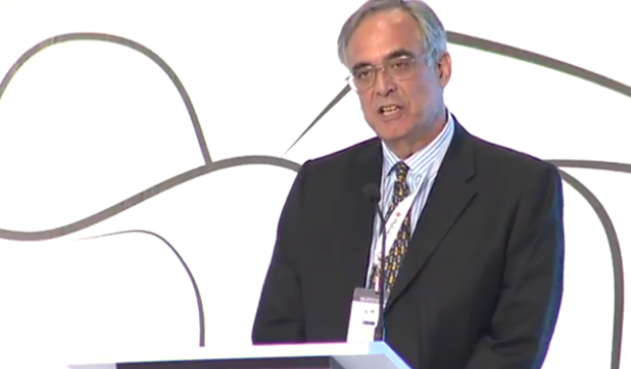By José Sette
Women and men started drinking coffee many centuries ago and traces of “formal” cultivation and trading of coffee go back as far as the 15th Century. Nowadays, coffee is commercially produced in more than 50 countries and the world drinks over 3 billion cups a day – either alone or with family, friends or colleagues. Some drink it at home, others at work or in coffee shops. People even drink coffee in outer space.
Since 1990, coffee growers have increased production from 100 million to over 165 million 60kg bags today. Coffee producing countries still export the bulk of their produce, earning around US $20 billion in exports a year. The annual revenue of the coffee industry is estimated to exceed US $200 billion. Around 25 million farming households depend on coffee for their living.
At least 100 million families depend on coffee for their living. A substantial number of jobs and economic opportunities are created along the global coffee value chain. These range from input providers to farmers, traders, processors, roasters, distributors, marketers, packaging suppliers, baristas and even those who deal with the disposal and re-use or recycling of coffee waste.
Coffee is a growth market. Globally, the number of consumers continues to rise and consumption is steadily growing at a healthy annual rate of 2.2 per cent.
In spite of the positive market trends, significant differences exist among actors in the coffee value chain in terms of risks, income, access to resources and vulnerability to price volatility and climate change.
The drop in coffee prices by 30 per cent over the last two years has had negative repercussions for the lives of many coffee farmers. How can we ensure equitable prosperity for all coffee stakeholders, and especially for millions of coffee farmers? They represent the weakest link in the value chain and often struggle to cover basic production costs at current price levels, especially taking into account increases in cost of inputs and logistics.
All those involved in the coffee sector agree on the need to take corrective actions in order to ensure greater prosperity for coffee farmers and their families, so that the growth in the sector is equitableand sustainable in the future.
This Report seeks to tackle these complex issues. It has been produced using rigorous, factual, informed and independent analysis.
This first Coffee Development Report (CDR) marks the launch of a new series of flagship reports, which represent a significant upgrade in the ICO’s function as a global forum for discussion of coffee policies. The flagship reports will strengthen the Organization’s role as the major and neutral source of coffee data and analytics and set the agenda in the global debate on issues related to the development of the coffee sector. In this perspective, the CDR responds to the ICO’s mandate to be a leading source of information on the coffee sector in order to enhance market transparency, as set out in the International Coffee Agreement 2007 and also reiterated in the current Five-year Action Plan 2016-2020.
This first edition of the CDR is based on the analysis of ICO data and information from external sources and seeks to offer a framework to capture the complex nature of the coffee market. It builds on and complements other ICO studies that also shed light on the strong relations between the development of a sustainable and inclusive coffee sector and its economic viability. The Report draws on the outcomes of the structured sector-wide dialogue launched by the ICO in 2018-19, in which 80 experts and 2000 participants were involved in five consultative events organized by the ICO in Nairobi, at the United Nations in New York City, in Rome at the EXCO Development Expo and at the European Commission in Brussels.
By placing economic sustainability at the centre of attention, this year’s CDR responds to the concerns of ICO members, as set out in Resolution 465 on Coffee Price Levels.
By virtue of a rigorous quantitative analysis, the relationship between coffee farming and socioeconomic indicators such as poverty and food security is examined. The solutions identified seek to address low price levels and price volatility in order to meet the long-term sustainability goals set out in the United Nations Sustainable Development Agenda. At the heart of the UN Agenda is the concept that “No one should be left behind”, and surely the vision of the ICO is that this should not happen to coffee farmers, workers and their families and to all coffee stakeholders.
This effort, I hope, will inform the political debate and help mobilize the support of governments, financial institutions and international organizations in order to help the world coffee sector to grow sustainably, while reducing barriers to trade, fostering social, economic and environmental sustainability and generating prosperity for all those involved in the coffee value chain.
It is a great pleasure for me to present this Coffee Development Report 2019, which adds a new dimension to the analysis of the development of the world coffee sector. The Report reaffirms the commitment of the ICO in supporting its members and all coffee stakeholders to achieve inclusive and sustainable development and to meet all 17 Sustainable Development Goals. A key message of the Report is that the sustainable and inclusive development of coffee sector requires major shifts, through enhanced sector-level cooperation based on shared values and responsibilities and an alignment of actions, funding and schemes through pre-competitive action, public-private partnerships and investments.
Finally, I extend my personal compliments to the entire ICO team, including our international experts and external contributors, who accepted the challenge of initiating and blazing a new trail for the Organization by producing this timely Report that should inspire all parties interested in promoting the sustainable development of the whole coffee sector.
The writer is the Executive Director, International Coffee Organisation (ICO).






